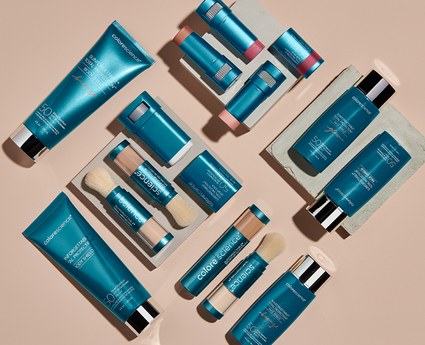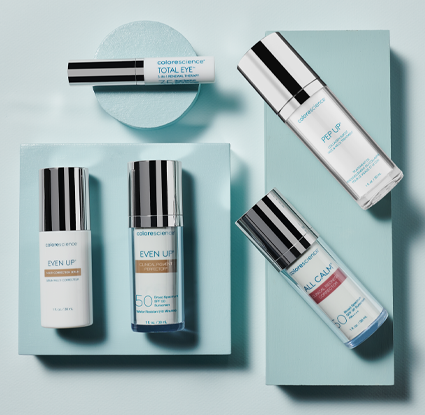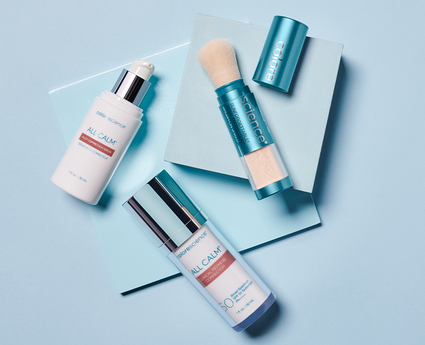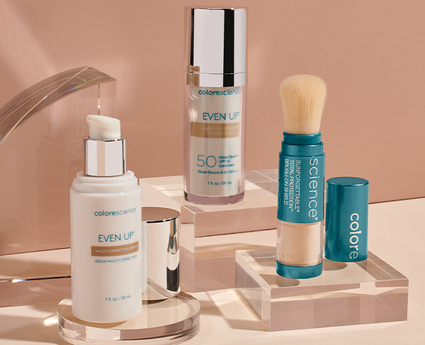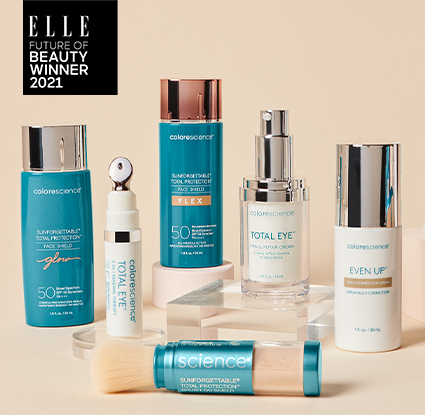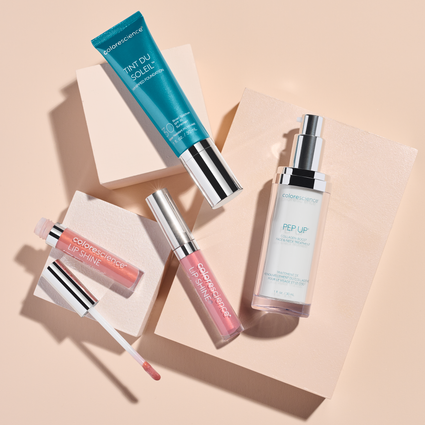5 Causes of Hyperpigmentation & How to Treat It
Many people experience skin discoloration in their lives. Acne scars, sun damage, and dark spots are different types of hyperpigmentation that can cause some areas of your skin to be darker than others.
While we all experience skin issues from time to time, it doesn't make hyperpigmentation any less concerning for those living with it. These darkened spots on your skin can make you feel self-conscious or even embarrassed, but many different treatments are available.
So where does hyperpigmentation come from, and what can you do about it? Keep reading to learn more about some of the most common causes of hyperpigmentation and how you can treat it.
- What Is Hyperpigmentation?
- What Are the Causes of Hyperpigmentation?
- How Do You Know If You Have Hyperpigmentation?
- How Do You Treat Hyperpigmentation?
- How Can You Prevent Hyperpigmentation?
- Get Rid of Dark Spots & Enjoy a Clearer Complexion
What Is Hyperpigmentation?
Hyperpigmentation is a skin condition that causes patches of darker skin on the face and body. "Pigment" refers to the color of your skin, while the word "hyper" refers to extra or additional, so hyperpigmentation means extra color.
When we’re talking about skin, hyperpigmentation refers to patches of skin that are usually darker or more melanated than the surrounding area. It occurs when the skin produces extra melanin, which can cause discoloration ranging from brown and black to pink or red.
Hyperpigmentation is a sign of a damaged skin barrier, which can also contribute to rough, dry skin, premature aging, and skin cancer risks. Hyperpigmentation can occur anywhere on the body, but it's most noticeable on the face and chest. While it’s typically harmless, it can affect your confidence, so many people choose to treat it.

What Are the Causes of Hyperpigmentation?
There are many different causes of hyperpigmentation, so the reason you have it may be different from the reason another person has it. Luckily, hyperpigmentation is typically not a condition to be medically concerned about; however, you should visit your dermatologist if you notice hyperpigmentation and want to address it.
The overarching cause of hyperpigmentation is an increase in melanin production, but what causes that, and what are the main causes of hyperpigmentation? Let's take a look at a few of the most common causes of hyperpigmentation on the face and body.
Sun Exposure
Not wearing sunscreen can lead to hyperpigmentation. UV rays darken your skin, which is why many of us tan when we spend time outdoors. However, that exposure can also worsen existing hyperpigmentation, especially for individuals with darker skin tones.
Ultimately, the skin produces more melanin to protect itself from harmful UV rays, causing dark spots or patches on the skin, most commonly known as sun spots.
Hormone Changes
Hormonal changes can affect your skin in many different ways and may cause hyperpigmentation. Hyperpigmentation is common during pregnancy because of the swift and significant hormonal changes a woman experiences. However, birth control pills or hormonal conditions may also lead to hyperpigmentation.
This type of hyperpigmentation is known as melasma.

Medications
Some medications can cause hyperpigmentation. In some cases, hyperpigmentation is a potential side effect. For instance, someone taking birth control may experience hyperpigmentation until they stop taking it.
However, many other medications can cause hyperpigmentation, such as antibiotics, anticonvulsants, psychoactive agents like antidepressants, nonsteroidal anti-inflammatory drugs (NSAIDs), and so forth.
Certain Conditions
Certain health conditions can cause hyperpigmentation. For instance, Addison's disease and thyroid disorders that affect hormone production may lead to skin discoloration. Additionally, discoloration is fairly common in individuals with inflammation of the skin, which can include other skin disorders like acne or eczema.
Irritation or Injury
Many people experience skin discoloration due to inflammation of the skin as a result of acne scars, eczema, and injuries like cuts or burns. This discoloration, or postinflammatory hyperpigmentation (PIH), is chronic but can spontaneously improve.
How Do You Know If You Have Hyperpigmentation?

Hyperpigmentation can affect anyone of any age, race, ethnicity, or gender. If you have hyperpigmentation on your face, you'll notice dark spots or blotches of discoloration.
However, there are typically no other symptoms. These discolorations don’t itch or feel different from the rest of your skin. The only difference is the color, which can be black, brown, gray, pink, or red.
Age spots are a common form of hyperpigmentation and occur because of sun damage. If your hyperpigmentation is caused by sun damage, you'll experience small, dark patches of skin on the face, hands, and other areas of the body most commonly exposed to UV rays. You may also notice these spots darkening after sun exposure.
On the other hand, if your hyperpigmentation is caused by hormonal changes due to underlying health issues, pregnancy, or birth control, you may experience spots similar to age spots but larger. Meanwhile, hyperpigmentation due to other causes like acne may leave discoloration long after the condition is gone.
If you have hyperpigmentation, the dark spots will likely worsen when exposed to the sun because the melanin in your skin will become darker once it’s absorbed UV rays.
How Do You Treat Hyperpigmentation?
While hyperpigmentation is fairly common, many people choose to treat it. You should visit your dermatologist if you're worried about any spots on your skin to ensure it's not something more worrisome than discoloration.

For example, skin cancer can also present as darker spots on your skin. Once melanoma has been ruled out, you have a few options for removing dark spots on your face and body, such as:
Skin Care Treatments
There are many skin care treatments available that help brighten the skin and reduce the appearance of dark spots. Creams, serums, and moisturizers contain ingredients that lighten dark spots while supporting overall skin health. For instance, moisturizing ingredients like hyaluronic acid and retinol can boost cell turnover and restore your skin barrier.
You should also protect your skin from harmful UV rays every day of the year. You can choose the right sunscreen for you depending on your needs and preferences. For instance, you might prefer a mineral sunscreen for your face that’s free of chemical ingredients instead of traditional sunscreen.
Cosmetic Treatments
Cosmetic treatments like chemical and laser peels are a more aggressive approach to eliminating hyperpigmentation. A chemical peel reduces the appearance of dark spots by removing the epidermis — the outermost layer of skin.
Laser skin resurfacing is another effective option that uses light to reduce the appearance of discoloration by targeting the dermis to promote collagen production.
You can also try intense pulse light therapy (IPL), also known as a photofacial, which stimulates collagen growth and can treat pigmentation concerns.

Home Remedies
Many people swear by their skin care home remedies. However, you should be careful when using anything new on your face, especially ingredients that aren't designed for your facial skin.
Some common home remedies that have been used to treat hyperpigmentation are:
- Apple cider vinegar (ACV): ACV contains essential vitamins and acids that exfoliate the skin, so many people use it as an acne scar treatment.
- Aloe vera: Aloe vera is a common skincare ingredient many of us use to treat sunburns. There's little scientific evidence that this plant can reduce hyperpigmentation, but since it has moisturizing properties, it can be good for the skin.
- Green tea: Green tea is rich in antioxidants, which can protect the skin from free radical damage. With anti-inflammatory effects, it may help skin heal and prevent the over-production of melanin that contributes to discoloration.
How Can You Prevent Hyperpigmentation?
UV rays worsen hyperpigmentation and can contribute to it. While there are other factors, such as medications, medical conditions, and hormonal changes, exposure to the sun is one of the main contributing factors to hyperpigmentation.
- Avoid the sun: Avoiding direct sunlight is the best way to prevent hyperpigmentation. You can check the UV index on your favorite weather app to tell you the expected intensity of UV radiation from the sun. The higher the UV index, the more dangerous the sun's rays are.
- Wear sunscreen: You should wear sunscreen every day, even in the winter. While you may have gray, cloudy days in the winter, protecting your skin from UV rays is still important because they can contribute to sun spots regardless of the season. You already know the importance of skin care, but you should consider using products with SPF to help protect any visible skin when you leave your home.
- Wear a hat: Sunscreen can protect your skin, but sweat and water can make it soak off your skin. If you don't have sunscreen while outside, you should wear a hat to protect your face from the sun. Also, consider investing in UPF sun protection clothing.
Unfortunately, hyperpigmentation isn't always preventable. While UV rays can worsen skin darkening, there are many other potential causes of hyperpigmentation, such as hormonal changes and existing skin conditions. But even though you can't always prevent skin discoloration, you can treat it.
Get Rid of Dark Spots & Enjoy a Clearer Complexion
Hyperpigmentation is a fairly common skin problem. While it's not dangerous to your health, it can make you self-conscious. While there are many causes of hyperpigmentation, there are also many treatment options, and we’re here to help.
Our mineral sunscreens are designed to protect your face from the sun's harmful UV rays to prevent discoloration and more serious health problems. In addition, our skin care treatments are designed to minimize the appearance of dark spots while providing you with a more youthful complexion. Reduce dark spots and protect your skin from the sun by browsing our collection today.

